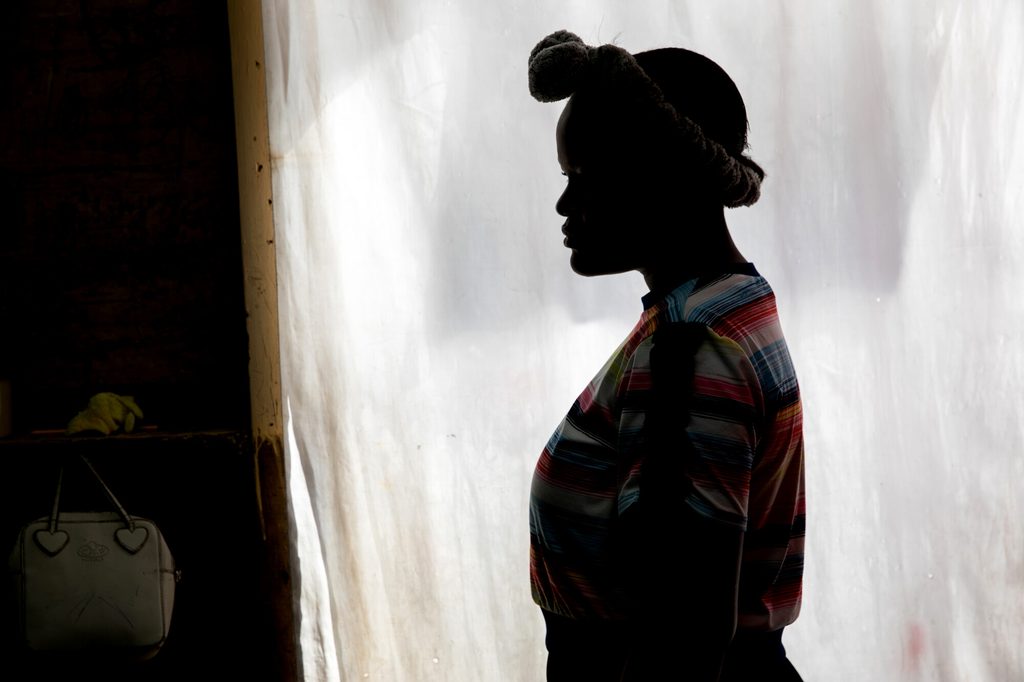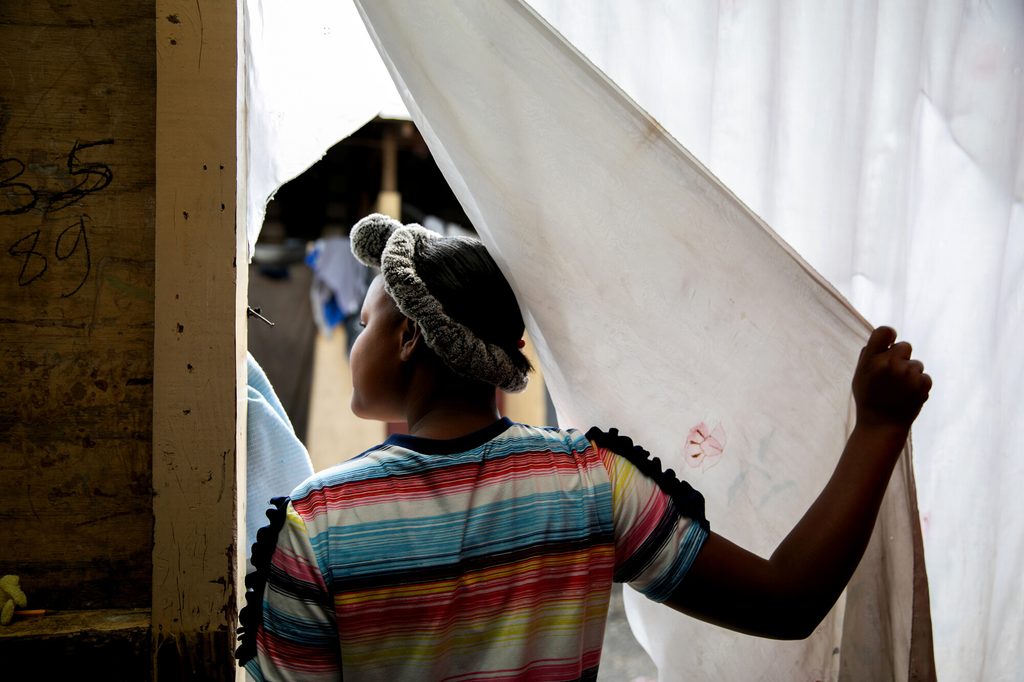Nowhere to Hide: Lovelie’s Escape from Haiti’s Spiraling Violence
26 March 2025The rapid spread of armed group violence in Haiti transformed Lovelie's* life in an instant. What was once a comfortable existence in a ten-room house with a thriving family business became a nightmare of survival when armed groups began taking over neighborhoods in her city.
Lovelie*, a 17-year-old girl, lives with her parents and siblings in an internal displaced site in Haiti. Her family consists of her parents, and four siblings – two brothers aged 30 and 27, another brother who is 21, and a 26-year-old sister.

“We managed to escape because the armed men started arriving and we ran,” Lovelie recalls. “We used the narrow alleys to escape. What made us decide to run was that if we didn’t run they could have killed us or do anything to us.” The violence was sudden and terrifying. On a Sunday, while Lovelie’s mother Elisena* was cooking after church, the neighborhood transformed. Bullets began flying, and families were forced to flee with nothing but the clothes on their backs.
“What made us decide to run was that if we didn’t run they could have killed us or do anything to us.”
Lovelie*, 17 years old, Haiti
The displacement was brutal. Lovelie and her family lost everything – their home, their business, their sense of security. Her father could no longer sell at the marketplace, and her mother’s once-successful shop was completely destroyed. “Before the armed men had arrived, we were living well. Everything we needed, we found them easily,” she says. Now, they survive in a makeshift shelter, struggling daily for basic necessities.
Despite the challenges, she is focused on her future
As a young woman, Lovelie became a victim of gender-based violence during their escape, an experience that has deeply impacted her. Despite this trauma, she remains focused on her future. “My first dream is to make my mother proud of me. For my second dream, I want to learn to trade. And third, I want to live well,” she says with remarkable resilience.
“My first dream is to make my mother proud of me. For my second dream, I want to learn to trade. And third, I want to live well.”
Daily life is a constant challenge. Water is scarce, food is limited, and education is intermittent. “No, I don’t manage to eat often. Neither drinking water nor water for daily uses, I find it often,” she explains. Her menstrual hygiene is particularly difficult, often resorting to using old white shirts when sanitary products are unavailable.
About Plan International response
Plan International’s response has been crucial in supporting Lovelie and thousands of others like her. In a country where over 1 million people have been displaced, including 550,000 children, the organization has created a comprehensive support system that addresses the most critical needs of displaced families.
Understanding the complex humanitarian crisis in Haiti, Plan International has established child-friendly spaces that serve as safe havens for traumatized children. These spaces provide more than just physical safety – they offer psychosocial support, recreational activities, and educational opportunities that help children like Lovelie maintain hope and dignity during incredibly challenging times.
For Lovelie specifically, this support has been transformative. She has received multi-purpose cash assistance that helps her family meet basic needs, dignity kits that support her personal hygiene, and access to child-friendly space activities that provide emotional support and a sense of normalcy. The organization’s case management services ensure that vulnerable children receive targeted support, including family tracing and protection services.

The organization’s response goes beyond immediate relief. By providing cash transfers, hygiene kits, and protection services, Plan International helps families like Lovelie’s maintain their dignity and hope for recovery. Their approach recognizes that humanitarian aid is not just about survival, but about preserving human potential.
“I hope they help us leave here so we can live comfortably, so we can eat comfortably, so that we can go back to doing everything we used to do,” Lovelie says. Her words encapsulate not just her personal hope, but the collective aspiration of thousands of displaced Haitian families.
“I hope they help us leave here so we can live comfortably, so we can eat comfortably, so that we can go back to doing everything we used to do.”
Lovelie*, 17 years old, Haiti
Despite everything, Lovelie’s dreams remain vivid. She hopes to complete her studies in cosmetology, support her hardworking mother, and rebuild their life. Her resilience is a powerful testament to the human spirit’s ability to hope and heal, even in the most challenging circumstances.
*Name changed to protect identity


